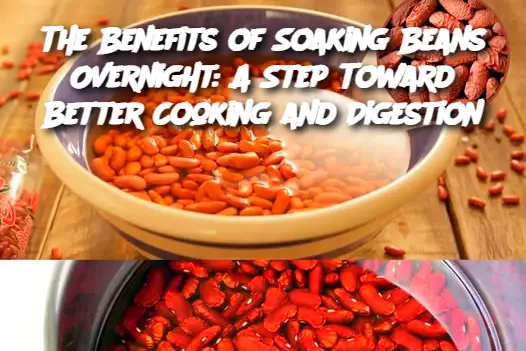ADVERTISEMENT
Quick Soak Method: If you forgot to soak your beans overnight, there's a quick soak method that can speed up the process. Bring the beans and water to a boil, then cover and remove from heat. Let the beans sit for 1 hour before draining and rinsing. While this method isn't as effective as an overnight soak, it still helps to soften the beans and reduce cooking time.
Soaking in Broth: For added flavor, you can soak your beans in vegetable or chicken broth instead of water. This infuses the beans with a savory taste and enhances the final dish.
Soaking in Saltwater: Some cooks prefer to soak their beans in saltwater to help soften the beans and improve their flavor. Add a teaspoon of salt per liter of water during the soak for this variation.
FAQ:
Do I have to soak beans before cooking them? While it's not strictly necessary to soak beans, it is highly recommended. Soaking helps to reduce cooking time, improve texture, and aid in digestion by reducing the compounds that can cause gas and bloating.
Can I cook beans without soaking them first? Yes, you can cook beans without soaking them, but they will take much longer to cook, and the texture may not be as soft or creamy. It's also more likely that you’ll experience digestive discomfort from unsoaked beans.
Can I soak beans for more than 12 hours? Soaking beans for too long can lead to fermentation or sprouting, which may affect their taste and texture. It’s best to soak them for no longer than 12 hours to avoid these issues.
Do I need to discard the soaking water? It’s recommended to discard the soaking water to remove any impurities, toxins, or excess starch. Fresh water should be used for cooking.
Can I soak beans in a slow cooker? You can soak beans in a slow cooker, but it's not recommended to use the slow cooker for the soaking process itself. Soaking should be done separately, and then the beans can be transferred to the slow cooker for cooking.
By soaking beans overnight, you’re not only saving time during cooking but also improving the overall quality of your meals. The practice enhances the flavor, texture, and digestibility of beans, making them an even better addition to your healthy eating routine.
ADVERTISEMENT
